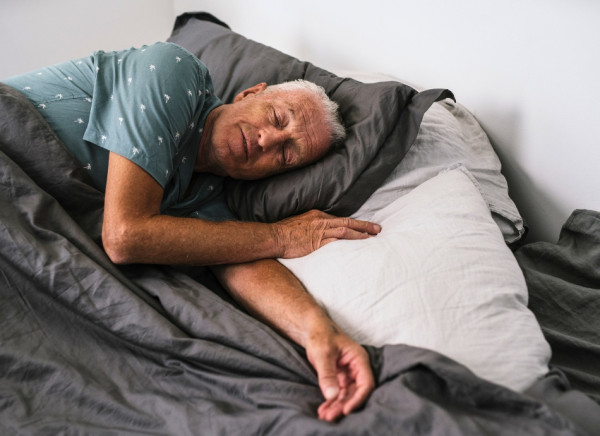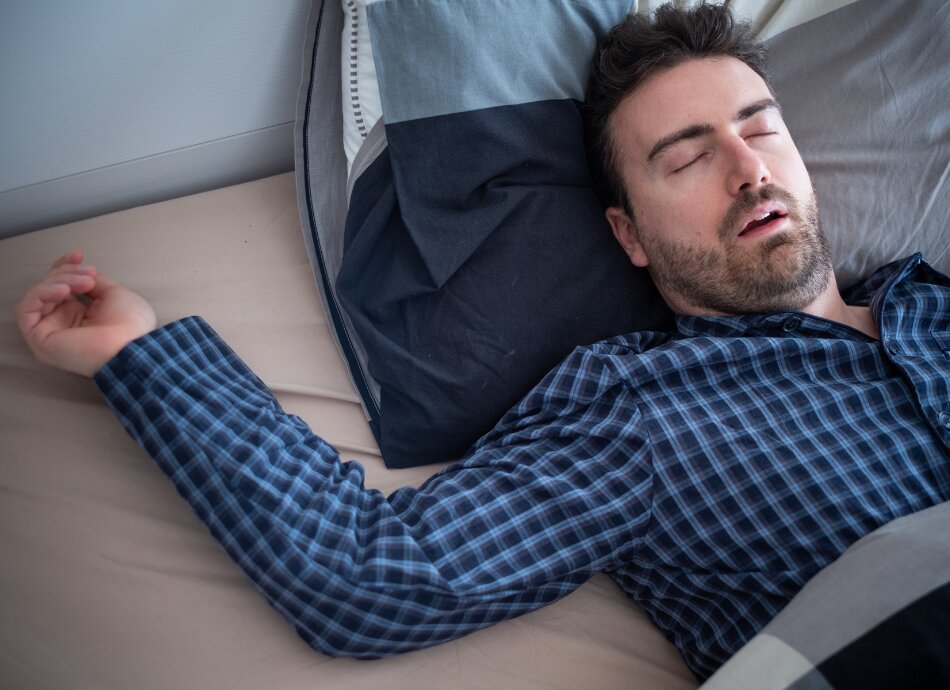1. Sleep on your side
Snoring is worse when you lie on your back. Try sleeping on your side. If you’re worried about rolling onto your back during the night, use a full-length pillow as a prop to keep you on your side. You don't have to choose just one side and stay there. Start on the left side and see how you feel. You can also try sewing a sock onto the back of your pyjamas and putting a tennis ball inside it to encourage lying on your side.

Image credit: Canva
2. Lose weight
Being overweight can make your snoring worse. It increases the chance of fat tissue pushing down on your throat, making your snoring worse. Read more about weight loss and keeping active.
3. Limit or avoid alcohol
Drinking alcohol makes snoring worse as it relaxes your airway muscles even more than usual. The more you drink, the worse your snoring may be. Plus, alcohol can disrupt your sleep in other ways. Read more about the effects of alcohol.
4. Stop smoking
While smoking is bad for your health in general, it’s also bad for snoring. It damages your heart, lungs and causes nasal congestion, which increases snoring. Read more about the effects of smoking and how you can quit.
5. Treat allergies
Allergies can reduce the airflow through your nose and cause you to breathe through your mouth, increasing the likelihood of snoring. Talk to your healthcare provider or pharmacist about an over-the-counter or prescription nose drop or spray or a hay fever treatment that might improve your condition.
You might also look at replacing your pillows and regularly washing bed linen, as dust mites and pollen can irritate your airways and make your snoring worse.
6. Try nasal strips or a nasal dilator
Stick-on nasal strips can be bought from your local pharmacy. They can be placed on the bridge of your nose to help prevent your nasal airways being blocked.
A nasal dilator fits inside your nose or nostrils to hold your nasal canals open for better airflow.
7. Raise the head of your bed or sleep on 2 pillows
Lifting the head of your bed by about 5 to 10 cm might help reduce your snoring. Put a book or blocks under the legs at the head of the bed – ask somebody to help if you can't do it yourself. Otherwise you can try sleeping on 2 pillows to lift your upper body so you get more height.
8. Correct any anatomical problems with your nose
Some people are born with a deviated septum, which is when the wall that separates your nostrils is crooked. Talk to your doctor or an ear, nose and throat (ENT) specialist as you might need surgery (septoplasty) to correct it. There are also other procedures that can help open your upper airway.






